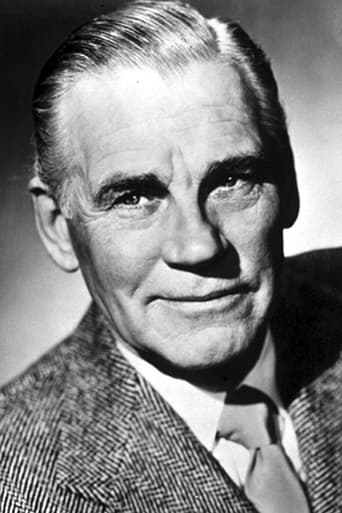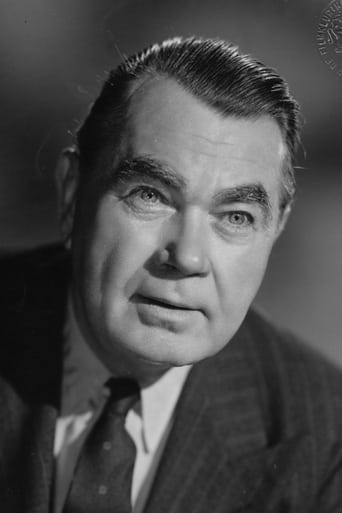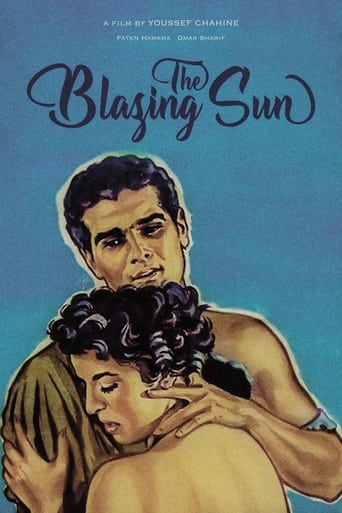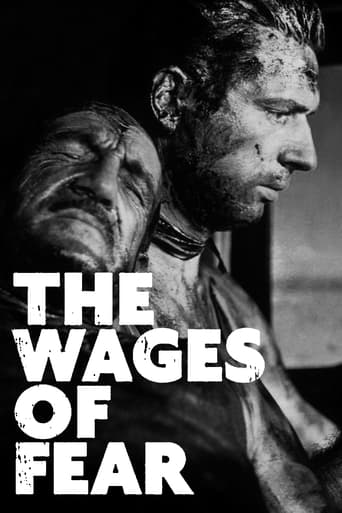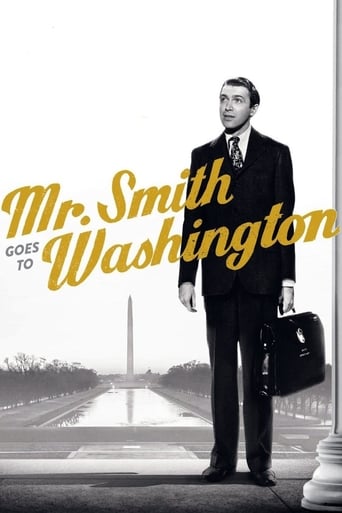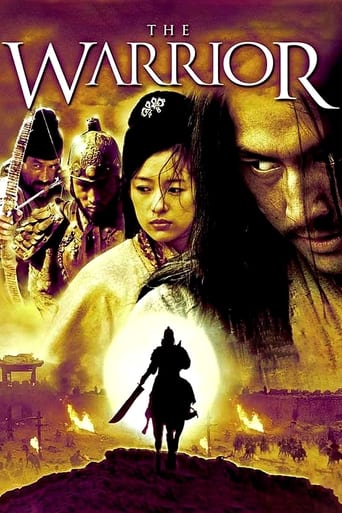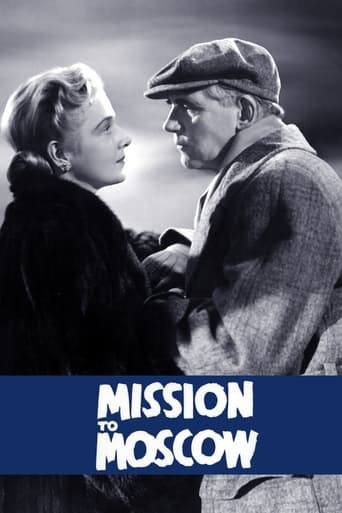
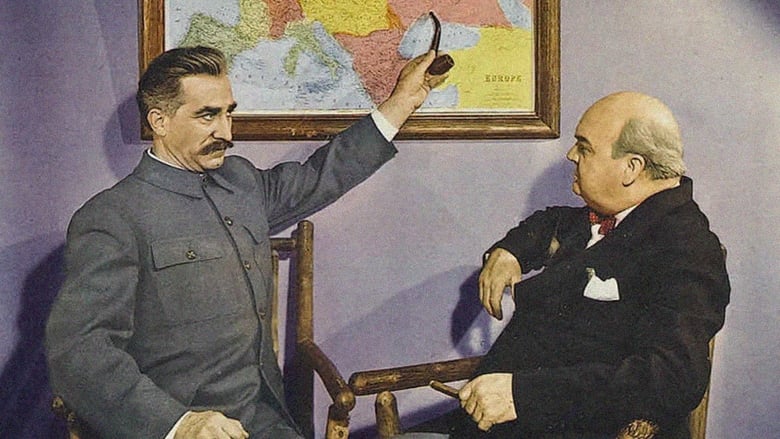
Mission to Moscow (1943)
Ambassador Joseph Davies is sent by FDR to Russia to learn about the Soviet system and returns to America as an advocate of Stalinism.
Watch Trailer
Cast
Similar titles
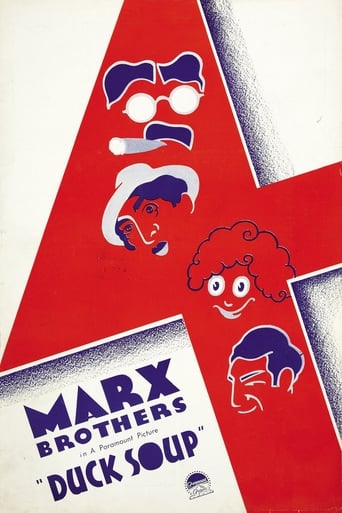

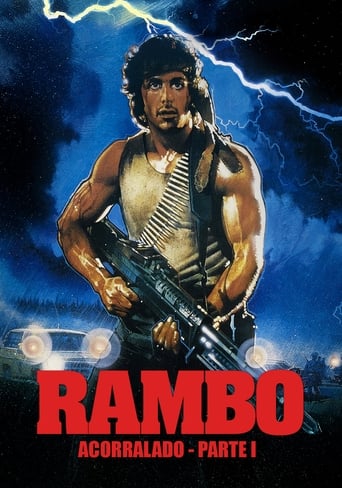
Reviews
Pretty Good
This is a small, humorous movie in some ways, but it has a huge heart. What a nice experience.
Although I seem to have had higher expectations than I thought, the movie is super entertaining.
It is encouraging that the film ends so strongly.Otherwise, it wouldn't have been a particularly memorable film
The reviews of this film are in many ways as interesting as the film itself. While nearly everyone recognizes that this films constitutes an unconscionable defense of Stalin, most also go on to make all the typical false amalgams. Stalinism=Communism=Soviet=Russia. No part of this equation is correct. It reflects an almost total lack of historical understanding and in particular an inability to distinguish between different periods and in terms of itical change and evolution.Had this film (or a similar film sympathetic to Russia) been made between 1917 and 1919, it would have been highly desirable and might have helped to prevent the damaging East-West split that has existed ever since and encouraged a more healthy political development in Soviet Russia itself.But no! At that time, the US was in the grip of its first absurd "Red Scare", beginning a process of outlawing left wing opinion that would culminate, during the second post-war scare, in the disgraceful (still unrepealed) Communist Control Act (an act that would not even find an echo in Imperial Germany or Conservative Britain but would only ever be emulated in Fascist countries) and reducing its labour movement to a kind of organised thuggery bearing little or no resemblance to a movement of working-class solidarity.Had this film (or a similar film sympathetic to Russia) been made in 1921, when the US was, as sometime occurs, enjoying a lucid interval, it would not have been in the least out of place. There was at that time considerable and deserved sympathy for Russia on the part of many ordinary Americans, and some extraordinary ones, which led to an appreciation of the considerable achievements since 1917 as well as a warm-hearted response to the Russian famine of that year. 1921 was the year when Charlie Chaplin, a generous contributor to the famine fund, organised at the behest of the government by J. Edgar Hoover, visited Russia and spoke strongly in its favour. Words and deeds that would of course so unreasonably be held against him some thirty years later by the same J. Edgar Hoover amongst others.But Russia of the 1930s was a very different matter from the Russia of 1917 or the Russia of 1921 or even the Russia of 1926 (when Pickford and Fairbanks made their acclaimed visit there). The people remained the same (here the film is not false) and many of the achievements of the Revolution remained (the film's tributes to the industrial achievement and to the important role played by women in Soviet society are perfectly valid), and there were still those, such as Bukharin - disgracefully misrepresented in the film and of whose arrest and trial Ambassador Davies so complacently approves, and Litvinov, represented sympathetically in the film but who was himself sacked in 1939 and, as a moderate and a Jew, extremely lucky to survive the purges.This is, without doubt, a film of quality, very much in the lineage of the fine war propaganda films produced by Capra, narrated by Walter Huston. One reviewer may not think much of Huston in this film but there is something amazingly seductive about the Huston voice and delivery (one always wants to listen afterwards to the classic rendering of Kurt Weill's September Song) that made his collaboration a crucial element in these films.But what makes the film disgusting is precisely its timing and the hypocrisy of that timing. Having so conspicuously failed to have extended a hand of friendship to Russia when it might have done some good - is the same foolish error not being repeated today? - the US, for purely strategic reasons chose to whitewash the emerging monster of Stalinism.It is true the US had little choice but to woo Russia at this point. The importance of the Red Army in the defeat of Hitler is undeniable and allowed the US to devote its resources to the much easier - because so unequal - task of defeating Japan. To this day the Russians quite rightly resent the way the Second World War is portrayed as a one-front war that was won in the West where, in truth, it was far more like a one-front War that was won in the East and won at a huge expense in life and suffering on the part of the Russian people.But Davies and Curtiz have gone more than a step too far in this film which compares very unfavourably with the two-part Capra film The Battle of Russia, quite the best in my view of the Why We Fight series, which in turn are in my view quite the best of Capra, which strike exactly the right note, praising Russia and Russians where praise it, leaving aside stupid anti-Communist rhetoric and without foolish ideological hostility to the Soviet Union as such, but which does not indulge in the same praise of the vile dictator Stalin and even of some of the vilest of his actions.The other irony is of course that, no sooner was the strategic imperative removed than the US would return, with an ingratitude that was akin to treachery, in an even more extreme and sordid manner, to its previous paranoia. By this time the worst excesses of Stalinism were past, the old monster was close to death and a gentle breeze of moderation slowly beginning to make itself felt. It would have been a good time for the US to close its ears to the cynical rhetoric of Winston Churchill and try and build on the wartime alliance in the interests of world peace and security...The best one can say for the US is that it is remarkably consistent both in its capacity for hypocrisy and its unswerving ability to only think in short-term strategic terms. No wonder that, today, more and more people throughout the world are coming to think of Russia as the more honest and more dependable of the two rival powers.
This Obvious Whitewash of Russia for Propaganda Purpose Picture was basically Commissioned by FDR. He wanted Warner Brothers to Film Ambassador Joseph E. Davies Book to Brain-Blast Americans to Lighten Up on Russia because We Needed Them in the Fight Against Fascism.America had to View Them as an "Enemy of Our Enemy" and Ignore Stalin's Atrocities, at Least for Now.To Say that Director Michael Curtiz and Screenwriter Harold Koch Delivered is to Say that They Delivered a Movie so Over the Top and Sensational is to Understate the Overstatement.The Film Ended Up being so Fawning and Fatuous that its Original Intent was Overshadowed by its Inability to See just how Ridiculous the whole Thing turned out.Nonetheless it was Released and for the Uninformed, Unaware, and Uneducated Folks of America it might have Convinced a Few that an Alliance with a Brutal Dictator was Necessary and would Save Countless American Lives by the End of the War.After the War, the Overreaction to the Soviets was just as Bad as this Overreaction during the War. It Resulted in the McCarthy Witch Hunts and a Cold War with the Soviets that Lasted a Very Long Time, and an Arms Race that Proliferated the World with Thousands of Nuclear Warheads on Both Sides.This Movie, in Retrospect, really wasn't Needed in 1943 and Making it and Releasing it was a Mistake with the Benefit of Hindsight.But, it is Worth a Watch for it was Made and it was Released during a Time when the Politicians of America and the Movie Makers of America were not Thinking Straight and is a Good Example of the "Fog of War".President Roosevelt, Warner Brothers, and Yes, Ambassador Davies should be Forgiven, because Their Intentions were Pro-American and Not Pro-Soviet, although when Viewed Today it Seems that way.
Extremely pro-Stalin & Soviet Union movie made in Hollywood at the very hight of WWII when Germany was on the verge, during the battle of Stalingrad, of knocking the USSR out of the war. Based on the book "Mission to Moscow" by the former US Soviet Ambassador Joseph E.Davies, who in fact introduces the film, were shown how the Soviet Union under the leadership of Premier Joseph Stalin was the envy of the free world in it's heroic struggle against Nazi Germany. It was the Soviet Red Army who that during the course of the war lost an estimated 9 million of its fighting man and women battling Nazi Germany.Given the job as Ambassador to the Soviet Union in 1937 by Pres. Roosevelt, Jack Young, Davies, Walter Huston, is given the assignment to check out what's going on in that country and report back to the president if it will be a reliable ally if a future conflict between Britian & France that breaks out with Nazi Germany. In what seems like no time at all Davies develops a love affair with the USSR and it's ruthless dictator Joseph or "Uncle Joe" as President Roosevelt calls him the Man of Steel himself Joseph V. Stalin played by the kind sweet and fatherly looking Mamart Kipper. The what seems like very naive Davies,who should have known better,is completely blown away by Uncle Joe's "great" accomplishments. That's in him bringing the backward and 19th century Russia into the 20th century with his series of 5 year economic plans. Plans not originated by "Uncle Joe" but his late boss and first leader of the Soviet Union Nickolai 'Nicky" Lennin.Even though very pro-Stalin the movie surprisingly doesn't skip over the notorious 1937/38 purge trials conducted by Stailn's henchmen in the Soviet Ministry of Justice and the dreaded NKVD. It was at those trials that the almost entire Soviet diplomatic and Red Army office corps were convicted and executed for treason. They were all accused in them planning with the exiled and deposed, by Stalin, Leon Trotsky, Sam Goldenberg, with the Hitler's Germany and Imperial Japan of trying to undermined and overthrow the Stalin regime. As It turned it wasn't treason that they were guilty of but Stalin's hysterical paranoia of feeling threatened by anyone close to him trying to throw him out of power!The movie goes on making excuse after excuse for Stalin's crimes,like the invasions of Poland Finland and the Baltic States,in that they were needed to get his country ready for the coming invasion by Hitler's Germany which he was certain was soon to come. Yet when the Nazi invasion finally came in June 1941 Stalin's well prepared for it Red Army was caught flat-footed having the German Army reach the very gates of Moscow before the year was out. Davies now back in the US and a private citizen does his best to get the American people, who at the time was very isolationist, ready to both supply the Soviet Union with military hardware as well as join it in it's battle against Germany. But as fate would have it it was japan's sneak attack on Pearl Harbor, six months after Hitler invaded the USSR, that did the trick for both him and President Roosevelt. It was Pres.Roosevelt who's behind the scenes actions was doing everything to incite a German U-Boat attack on US shipping in order to get the US into the war. What was so ironic about that is that it was Hitler's Germany who did everything possible to avoid a conflict with the USA, even having his U-boats not return fire after being fired upon by the US Navy, not the US that was the first to declare war!Despite the Soviet Union being an ally of the US at the time of the films release it in fact bombed at the box office not even making back half of the 1.5 million dollars it took to produce it. when shown to Russian audiences in Moscow people watching it, in them knowing what a horror "Uncle Joe" Stalin really was, could't refrain from laughing out load when ever Davies showed his enthusiasm for the Stalin regime as well as "Uncle Joe" himself! Even if it meant a one way ticket to a Siberian gulag or Soviet firing squad if they were ever identified,with the lights in the theater turned on, of showing disrespect to "Uncle Joe" and his "great" accomplishments for the Russian people!P.S No matter how ridicules and historically inaccurate,in covering up Stalin's crimes, the film "Mission to Moscow" is the one thing it got right is that without the help of the USSR the US and its western allies would have never won the war against Nazi Germany. According to official German casualty statistics the German military lost an astounding 2,400,000 killed and missing together with almost 3,500,000 wounded in the fighting on the Eastern or Russian front alone! And that's only up to November 30, 1944 when the German military stopped keeping casualties statistics! That's without even counting the enormous losses that the German army suffered fighting against the Red Army from December 1944 to the end of the war in May 1945! Those tremendous losses of manpower as well as military equipment against the Soviet Union would have fully equipped and manned as much as 400 Nazi infantry and armored divisions! A German army of almost 6 million strong which could have been thrown against the US Britain and their allies in not only North Africa and Italy but in the savage and bloody battles of Western Europe in 1944/5 which would have well turned the tied of battle in Hitler's favor! In fact there would have been no possibility of a Western Front without an Eastern Front tying down as much as 80% of the German Army needed to engage the advancing some 8 to 10 million strong Red Army!
An odd little movie. "Mission to Moscow" was brought to my attention by a BBC documentary on Stalin in the war years "WWI Behind Closed Doors". It describes the intense diplomatic efforts made by the allies during WWII to bring the Soviet Union into the war against Germany. Leaders in the West were willing to cast a blind eye to Soviet brutality and repression, including the massacre of Polish military officers at Katyn and the establishment of puppet governments in the territories they controlled, in order to keep them on the side of the West. This effort involved swaying public opinion in Western countries, and Joseph Davies' "Mission to Moscow" was cited as an example of this effort. There is an excellent article on Davies in Wikipedia, which describes how keen he was to see only the positive in the Soviet Union. Ironies abound in this film. Molotov appears as a kindly old professorial gent, Stalin is a hopeful visionary yearning for world peace. The glimpses of daily life in the Soviet Union include ice skating parties with piles of food, high fashion for the ladies, English-speaking railroad workers with nothing but love for their country, and American expatriates expressing admiration for the inventiveness of the Russian hosts they are there to help. In fact, while Davies was ambassador, a large number of American expats were being imprisoned by Stalin as counter-revolutionaries, despite having voluntarily emigrated to the Soviet Union to contribute to building a new society. Many petitioned the US Embassy to have their passports restored, and Davies refused to intervene. At one point, the US embassy staff in Moscow threatened to resign en masse. When Stalin consolidated power with the purges of his former associates in 1936 ~ 1938, Davies attended several of the show trials, and in "Mission to Moscow" he is shown nodding knowingly when Bukharin and the other defendants "confess" to their anti-Soviet activities and conspiratorial association with the now arch-enemy Trotsky. In the movie, Davies repeatedly insists that his mission is to see the **real** Soviet Union first-hand, yet in his visits were said to have been highly scripted and organized by the Soviet authorities. In retrospect, Davies comes off as a naïve fool, but seen in the larger context, perhaps someone a little more competent would not have been able to supplied the West with the kind of pro-Soviet view Davies could supply. But let's put history aside for a moment. This is just a bad film. It is stilted, over-scripted, and whatever points it is trying to make are spoon-fed to the audience. Davies had control over the final script, and his scenes come off as highly self-serving: Davies warning of the dangers of war over the objections of more experienced statesmen, Davies being congratulated at every turn by one world leader after the next for his insight into the coming war in Europe. You know pretty much at the beginning of each scene what is going to unfold – a vacation with the family to get away from world affairs ends with a phone call from the White House, a meeting with senators expressing doubt about the strength of Germany will end with Davies convincing them with facts to the contrary. And Walter Huston is just overworked here – he has to carry virtually every scene, because really, Mission to Moscow is mostly about Davies himself. A just plain awful movie and yet fascinating to watch, especially for a glimpse into this brief period of time when the US actually tried to like Stalin, and fascinating also for the fantasy views of Soviet life in the late 1930s. And particularly worthwhile if you also take the time to research the persons and events portrayed in the movie and juxtapose these against the events portrayed in Mission to Moscow. It is a very educational experience. At the time I saw this movie, it was not available on DVD, but could be downloaded from the Warner Brothers movie archive.
